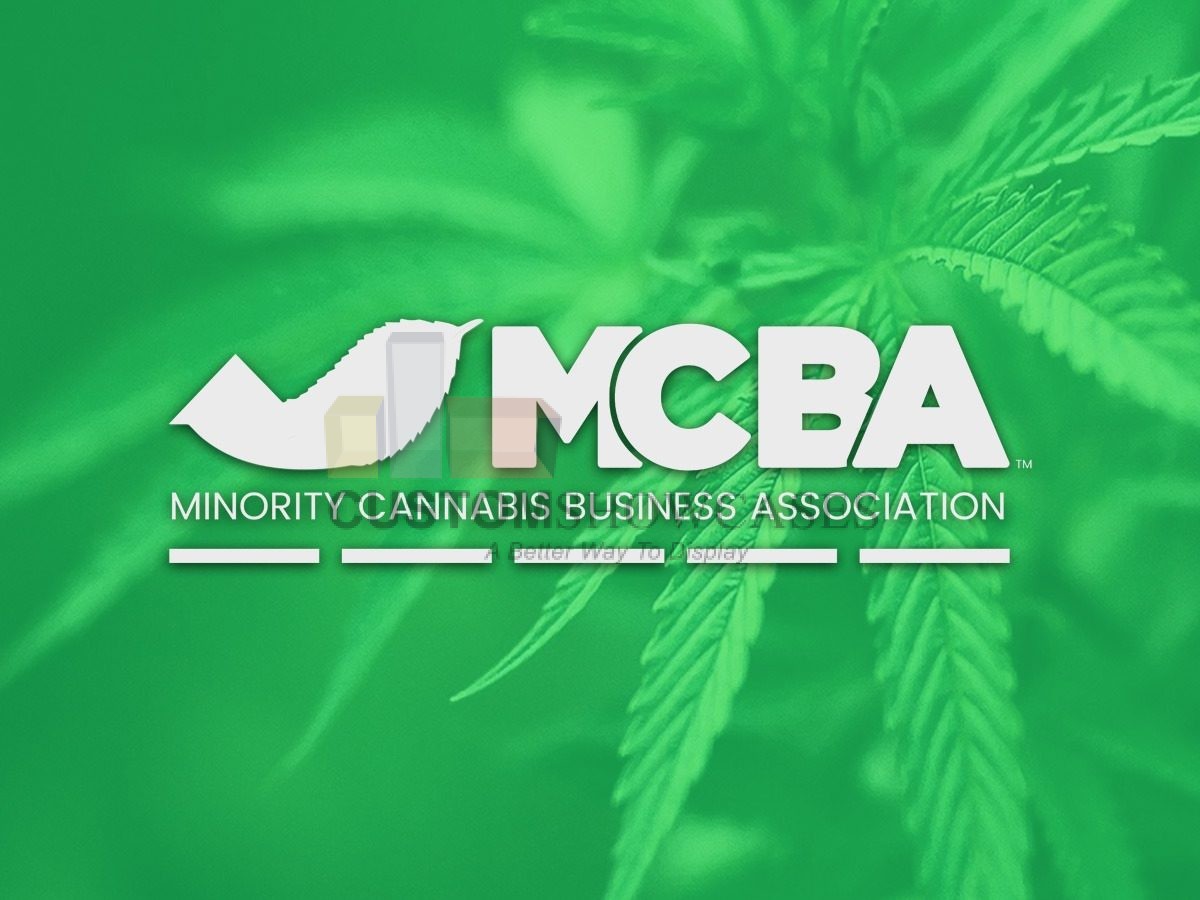

The Minority Cannabis Business Association is taking a multi-pronged approach to support more women and people of color in the cannabis industry.
Through economic empowerment, community reinvestment, restorative justice, and education and research, this non-profit is committed to including communities of color in a post-prohibition future.
What is the Minority Cannabis Business Association?
The Minority Cannabis Business Association or MCBA is a not for profit organization located in Oregon that was created to progress the cannabis industry by increasing the diversity of business owners, employees, and even consumers.
MCBA Co-founder Dr. Tiffany Bowden refers to herself as “inclusionist”. To paraphrase her own definition, “inclusionist” means actualizing a world that works for everybody by identifying and interrogating different equity measures and improving conditions for the most structurally disadvantaged. She sees education, networking, business mentorship, policy work, and corrections in the justice system as an ecosystem of goals capable of advancing the cause of greater diversity and inclusion in the cannabis industry, from seed to sale.
Their mission is to create equal success for cannabusinesses and promotes economic empowerment for communities of color.
Individuals and corporations in the cannabis industry or interested in entering the industry have a lot to gain from membership and participation with MCBA.
MCBA Objectives
The MCBA has 3 objectives that they live by. These objectives are what drives the Minority Cannabis Business associations to promote equality in the cannabis industry.
• ECONOMIC EMPOWERMENT: Increase the number and success of minority business owners and career professionals by assuring equal access to industry opportunity and promoting positive practices
• SOCIAL JUSTICE: Assist in reducing the number of people imprisoned with non-violent cannabis offenses and ensure people with non-violent cannabis offenses have fair access to the cannabis industry
• PATIENT/CONSUMER AWARENESS: Increase knowledge in minority communities on how cannabis can be an effective medicine and safe consumer good
Minority Cannabis History
The recent history of cannabis in the United States is predominantly a history of prohibition and racist abuse of people of color by law enforcement, the criminal justice system, and society. The opportunity to consume or produce any cannabis product only became legal for medical use in California in 1996, following decades of terror and grossly disproportionate incarceration of people of color.
Because the legal expansion of the cannabis industry is now happening on a state by state basis, there are different regulatory and cost burdens imposed on different aspects of cannabis businesses. The ongoing federal criminalization of cannabis imposes a significant level of risk in entering the industry. Staying in the industry means staying on the right side of the law. These barriers to entry and the specter of criminal enforcement, already disproportionately imposed on people of color, suppress racial diversity in legal cannabis businesses.
The Minority Cannabis Business Association was created in 2015 in order to mitigate these inequities through both direct and indirect support of women and people of color.
How to Join MCBA
In exchange for its members’ contributions, MCBA offers a litany of educational materials, events, networking opportunities, and high levels of engagement with other cannabis industry professionals. Individuals and companies who wish to contribute and participate can choose from several levels of membership, detailed at the MCBA website. Each category of membership contains tiered levels, in which the benefits of membership accumulate and increase with higher levels of contribution.
Individual Memberships include:
• Supporter—For $100 annually, individual Supporter members receive free access to online educational resources. Live online events with industry experts, monthly digital newsletter, breaking news, advance notice of MCBA networking events, and a lapel pin are all included at this level.
• Advocate—In addition to the benefits of a Supporter membership, Advocate members receive complimentary tickets to MCBA events and the opportunity to work in a committee, all for $500 annually or $50 monthly.
• Professional—Individual professional members also receive a digital badge to display on their websites and the opportunity to participate in MCBA Lobby Days for $1,000 annually or $100 monthly.
Corporate Memberships include:
• Ally—For $2,500 annually, corporate Ally members receive all the same benefits as individual Professional members, plus their company logo on the MCBA website.
• Advisor—Corporate Advisor members also get the opportunity to cultivate a topic for one educational story in the MCBA newsletter, at a cost of $5,000 annually.
• Champion—The Champion membership level adds the opportunity for an executive to appear in MCBA’s 1-minute mentor series, for $10,000 annually.
• Influencer—For $25,000 annually, the Influencer membership adds a year-long, cultivated social media campaign.
• Game Changer—Game Changer members, for $50,000 annually, also receive invitation-only federal lobbying update calls, participation in MCBA’s Bi-Annual Mastermind Session, and direct access to the MCBA federal lobbying team.
• Power Player—Power Player members contribute $100,000 annually. In addition to all the benefits of the Game Changer membership, they receive access to a customized Diversity, Equity, and Inclusion road map; an MCBA curated event and party at its headquarters or an external location; a quarterly Executive Update call; and inclusion in flagship programming such as expungement clinics.
Economic Empowerment Through Management and Startup Consulting
The MCBA economically empowers aspiring cannabis entrepreneurs on the legal and regulatory environments in the states where they plan to operate.
The organization stays current on every idiosyncratic legal detail to ensure its members can be confident in their business operations. Direct management and startup consultancy and business coaching are available for entrepreneurs and small businesses. Professional advice might involve any area of the business, at any point in its development. Marketing research, branding and sales strategy are all critical areas of small business development beyond its initial application and establishment. MCBA organizes state to state education expos, job fairs, and career fairs where people interested in any aspect of the cannabis business—from seed to sale—can meet, find job opportunities, and develop referral networks.
Economic Empowerment Through Engagement
At several membership levels, MCBA members have opportunities to steer the conversation.
They can work with MCBA to develop topics published in the newsletter, participate in working committees, collaborate with the organization’s executives, and influence its lobbying activities. In creating these opportunities, MCBA facilitates entrepreneurs and industry professionals in teaching and learning together about the most cutting edge factors affecting their businesses. It also builds solidarity and leverage within the cannabis industry that it can use to develop better laws and policies.
Education and Research Through Representation
Within ostensibly positive and non-judgmental cannabis industry publications, people of color—especially Black and Latino people—are often portrayed as rastas and rappers.
While these types of personas can be authentic and appealing, they are also stereotyped as consumers or “users,” which can reinforce racist stigma both inside and outside the industry. MCBA’s educational goals go beyond business consulting and into diversifying the image of people of color in the cannabis industry.
This includes developing profiles and highlighting people of color who own and manage cannabis businesses.
Restorative Justice Work
Most states that have legalized marijuana have not included automatic retroactive measures to address its past criminalization. People of color have been historically more heavily policed—more frequently stopped, arrested, and convicted of marijuana possession or distribution. In fully legalized states, criminal records still keep a disproportionate number of people of color out of the legal cannabis industry. On top of that, past convictions can cause individuals to be disenfranchised—to lose their right to vote—in some states.
Even in states that do not disenfranchise for all felonies, people with past convictions often believe that they have lost the right to vote. Leaving past marijuana convictions intact chills voting participation by individuals who have fulfilled all their obligations to the state.
One of the cumulative effects of the War on Drugs is that it wrongfully and immorally stifled millions of individuals’ ability to participate in democratic processes. Had these voices been included in elections and public bodies, the federal government and states might already have moved policy away from retribution and incarceration in general, and away from cannabis prohibition.
Perhaps subconsciously affirming the true goals of the War on Drugs and “tough on crime” rhetoric, in states where marijuana is not yet legal to produce or possess, law enforcement actually increased its targeting and prosecuting people of color for non-violent crimes related to marijuana. The MCBA works to support criminal record expungement, which in most cases also means the reinstatement of voting rights.
Community Reinvestment Through Policy
It has been clear for decades that marijuana poses far fewer risks to users compared to other substances, including legal prescription medications. The real risks to individuals who use or possess marijuana are by-products of its legal prohibition and the militarization of police in the U.S.
The risks to non-users are also by-products of prohibition. Families lost wage earners, individuals lost housing and job opportunities, and entire communities have been destabilized by prohibition. Including women and people of color in the cannabis industry means ensuring that, for example, tax revenue from cannabis businesses goes to rebuild the communities that endured the most harm due to prohibition.
The legacy of the federal War on Drugs is one of failure, racist moral panic, and willful obliviousness to evidence-based harm reduction strategies. As states and the U.S. advance beyond this mindset, it is critical to correct the harms and abandon the stereotypes attached to that legacy.
MCBA lobbies the federal government for law and policy changes in the long term to eliminate the stigma of criminality that burdens people of color in the cannabis industry. It also created model municipal and state legislation to advance equity as legalization advances.
MCBA members have a significant opportunity to contribute to the substance of these efforts and lead their own businesses to resilient success. Anyone interested in justice issues and the cannabis industry would benefit from joining.




